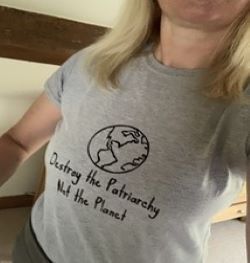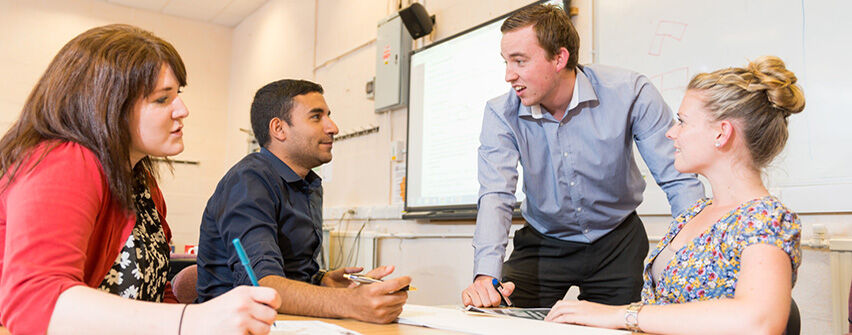Intending to start a conversation, this is an open letter to adult educators which challenges us to consider what “being” an educator means in our times of social crises climate and environmental emergency. Highlighting both historical and current calls to action it asks, how do we reclaim our social purpose?
An open letter to adult educators
Dear friends
After an incredibly tough two years, and, as we move towards and start to look to the future, I wanted to share some personal and professional reflections on what “being” and “becoming” an adult educator is in our current social and global context. My reflections have many questions and challenges to ourselves as adult educators. The intention is not despair but hope for a collective endeavour to come together to explore these ideas and thoughts further.
I’d just like to take a moment to remind you that what we do matters. It matters to our students and it matters to our world. So, I’d like to say thank you and hope that our collaborative efforts both now and, in the future, to meet the many challenges of our world, within our classrooms and through our work with our students, might inspire others.
I believe it’s time for us as adult educators to change the conversation We need a focus on the future and the incredible challenges that lie ahead of us and future generations. But let’s not forget our past. Let’s reclaim our social purpose as a sector, lets stand for social and planetary justice. Let’s not wait for it to happen through strategies and policies defined by those with and in power. Let’s challenge ourselves to do more. Let’s create hope and at the same time hope for more.
After twenty-five years of working in adult education in England, what I see now more than ever before, is a crisis of identity and imagination in the possibilities of what adult education can contribute to our world. The external view of adult education has become reduced to measurable impacts and outcomes of educational interventions which, if not contributing to economic productivity and growth have no value, purpose or meaning. The pervasive neo-liberal, advanced capitalist ideology are manifested in education policy, funding and the compliance regimes that engulf us, haunt our classrooms, our identity and our agency as adult educators.
What I know for certain is that the tensions will continue to heighten between old paradigms and new perspectives which seek transformative transitions for “collective sustainable futures”. Our work as adult educators surely is not just about interventions, correcting the deficiencies in the other parts of the education ecosystem, but transitions, hope and imagining new futures. Our work is participating in and creating moments of learning in individual and collective transformative change. Not just for our students, but also for ourselves.
Sixty years ago, in an open letter to WEA tutors (which has inspired me to write this one), Raymond Williams wrote about adult educational organisations, saying that “We are always in danger of losing that which we can never afford to lose. The organisations of social justice and the institutions of democracy are worth working for” (Williams, 1961).
Calls to action for educators today are appearing globally. These calls to action ask, what is the future we are educating our students for? And further, whose future are we educating for? UNESCO, following a consultation involving over one million people globally, have produced a powerful and evocative report which acknowledges the power of education to bring about profound change. The title of the report, “Imagining our Futures Together”, asks us to imagine, but to also create spaces in our classrooms for imagination. The report also recognises the urgency of this conversation, “humanity and earth are under threat, the pandemic has served to prove both our fragility as a species on earth but also our interconnectedness, urgent action is required” (UNESCO, 2021).
In his opening essay for the Great Transitions Initiative, exploring the pedagogy of transitions (Sterling, 2021), Professor Stephen Sterling starts by saying, “Our ability to achieve a liveable future for all depends on whether we can foster an unprecedented degree of social learning. There is no change without learning and no learning without change. But with the stakes higher than ever before, time is worryingly short”. How, he asks under such urgency do we affect such a large paradigm shift?
Blake Poland (2021) argues the sustainability crisis is not actually a technical problem that some clever scientists and entrepreneurs will be able to “fix” but a crisis of our imaginations. Perhaps, he says it could even be said that the sustainability crisis is a relationship problem. “We have fallen out of right relationships with ourselves, with each other and the more than human world”. How do we, as adult educators help to build and rebuild these relationships? What social learning, both intended and unintended can we help to foster as adult educators?
UNESCO’s report requires a new social contract for education, “to repair past injustices whilst transforming the future”. I think this calls for adaptive adult educators. For us to be able to hold onto doubt, to not have all the answers. To be comfortable in not being an expert. To see our classrooms as spaces where questions and answers can be explored together with our students. Where new possibilities can be imagined. bell hooks reminds us that: “the classroom remains the most radical space of possibility in the academy” (hooks, 1994).
What does this mean for the learning environments within our classrooms and beyond? Can we consider those beautiful encounters that happen within the classroom? Those teachable moments where your meticulous lesson plan stays firmly on your desk whilst you go with the flow with the question/challenge/discussion that might have been wholly unanticipated?

UNESCO’s vision for the future, is one I share; as peaceful, just and sustainable, others have called this my “idealism”. I prefer Angela Davies position, whereby “You have to act as if it were possible to radically transform the world. And you have to do it all the time” (Davies, n.d.). But this is not an individual endeavour, it is a collective one. We may not be cared about by policy makers but we can care about each other and work together on this. “Thinking together so we can act together to make the future we want” (UNESCO, 2021).
I have returned to this quote from Raymond Williams again and again in my work as an adult educator, so let’s remind ourselves of this universal truth, “in times of change people turn to learning in order to understand what is going on, to adapt to it and shape that change” (Williams, 1983). What then for us as adult educators?
References
Raymond Williams,(1961) An Open Letter to WEA tutors, downloaded from https://weaeducation.typepad.co.uk/files/raymond-williams-an-open-letter-to-wea-tutors.pdf
UNESCO, (2021) Reimagining our futures together: A new social contract for education downloaded from https://en.unesco.org/futuresofeducation/
Stephen Sterling, (2021)"Educating for the Future We Want," opening essay for GTI Forum "The Pedagogy of Transition," Great Transition Initiative, https://greattranstion.org/gti-forum/pedagogy-transition-sterling.
Blake Poland, (2021) "From Classrooms to Social Movements," contribution to GTI Forum "The Pedagogy of Transition," Great Transition Initiative, https://greattransition.org/gti-forum/pedagogy-transition-poland.
bell hooks, (1994) Teaching to Transgress, Routledge
UNESCO, (2021) Reimagining our futures together: A new social contract for education downloaded from https://en.unesco.org/futuresofeducation/
Raymond Williams (1983) Adult education and social change, in Lectures and reminiscences in honour of Tony McLean (Southampton, WEA Southern District).

